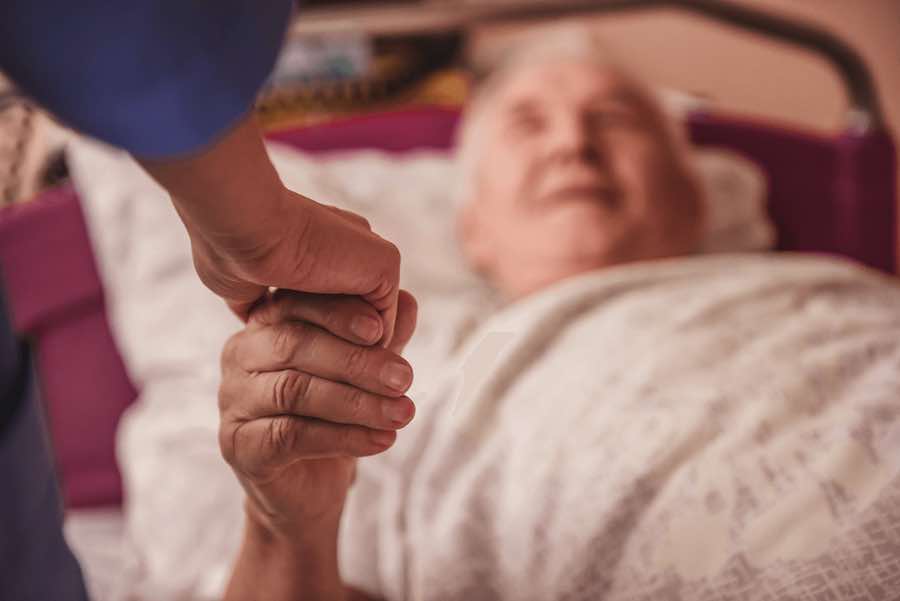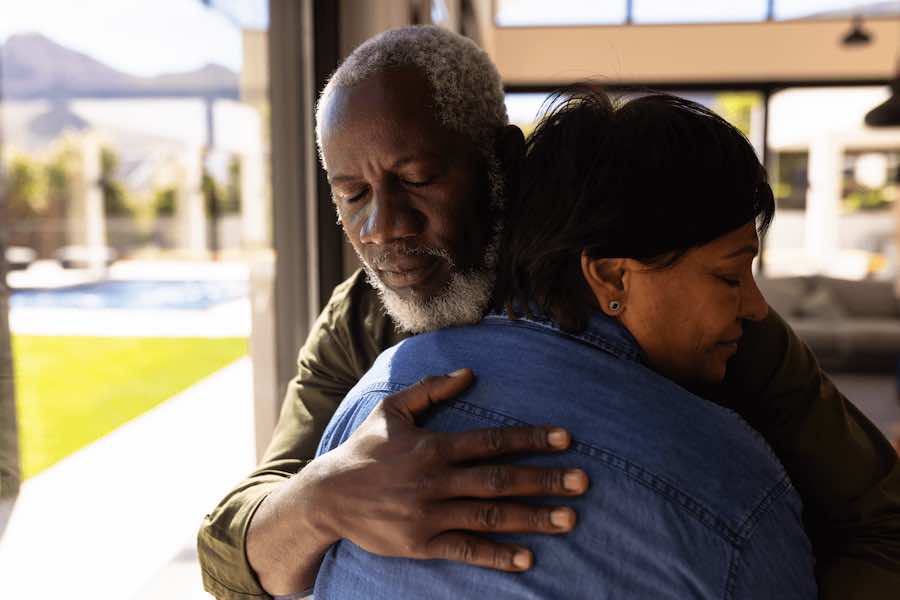Often, we see that people with dementia or Alzheimer’s, as well as their caregivers, will cope on their own for a time before seeking more in-depth support. Family members are keen to help their loved one around the house, check in on them periodically, or even cohabitate with them. It can take a while for the family to accept that their loved one may be heading toward a diagnosis. Understandably, it’s a hard thing to digest.
Families and patients are at the heart of hospice care. Every day, we see the outpouring of love and comfort between patients and their loved ones. We are witnesses to the struggle of providing care at home, and we know the effort you put towards meeting your loved one’s needs.
In the world of hospice care for Alzheimer’s and dementia patients, we understand the unique challenges presented to family members. It is so very difficult to watch a loved one begin to show signs of these diseases. It’s even harder to do it alone.
My loved one is showing signs of dementia or Alzheimer’s. What should I do?
Wondering if your family member should be evaluated? Perhaps you’ve noticed him or her showing symptoms, like decreased mobility or losing their ability to speak. If you’re unsure or would like to look more into this possibility, your local hospice team can certainly help you get started.
If your loved one receives a diagnosis, you have several options. When you and your family member are making the decision, ask several questions:
- Is your loved one struggling to take care of their basic needs, like bathing, eating, or using the restroom?
- Is your loved one losing their mobility or having a hard time getting up from bed?
- Are you feeling confident about meeting all of their needs at this time?
- Could you benefit from having support in caring for your loved one?
- Does your loved one have the capability to take their own medications reliably?
- Can your loved one verbally express all of their needs?
Have you thought about or been referred to hospice care for Alzheimer’s and dementia patients?

When you’re considering the options of hospice care, hospitalization, and a nursing home, take time to weigh the benefits. When someone over 65 is diagnosed with dementia, they are generally expected to have a life expectancy of six months or less. In modern medicine, a person is considered to be nearing the end of their life when diagnosed with dementia. This fact can leave family members wondering what to do.
When it comes to caring for dementia or Alzheimer’s patients, home hospice is becoming widely recognized as the best option. As patients near the end of their life, most often, they desire physical and emotional comfort and to remain at their homes. Hospice care for Alzheimer’s and dementia patients is a very specific type of care.
A hospice care team anticipates and reads the needs of a patient, even when they can no longer express them, whereas hospitals and nursing homes simply respond to medical problems or emergencies after they’ve happened. This is especially important in these specific cases, where your loved one may not be able to say what they need. It is crucial that they receive all the hydration, sustenance, and medication that they require, even when they cannot ask for it.
How can I help after my loved one is enrolled in home hospice care?
This is such a common concern. You love your family member and want to make sure they have all that they need. You may be accustomed to caring for them around the clock, or you may have a routine of visiting with them on occasion to provide them comfort.
One of the best things about hospice care for Alzheimer’s and dementia patients is that there are no “visiting hours.” You are welcome to come see your loved one whenever you want. You can keep bringing them dinner, watching their favorite show with them, or spending time together in prayer. But with hospice care, the weight of providing all of their medical and daily self care is taken off of your shoulders.
Really, you should be spending this time providing comfort to your loved one and making lasting memories. You shouldn’t feel that you are required to do all things for them, even though you love them very much. Your hospice team is here to help your loved one maintain their dignity by lifting those responsibilities from your hands. To many patients, it may feel shameful or embarrassing to have their daughter or son caring for their hygienic needs or feeding them. Letting a professional take care of these needs is a kindness to the patient.
How can I cope with my loved one’s decline?
Hospice care for Alzheimer’s and dementia patients does not end with the patient. We care for the whole family. From personal experience and countless opportunities to work with families, we know how difficult this time is. We will not leave you facing this season alone.

Your hospice team comes equipped with many ways to support you. The team begins by providing up-to-date information on dementia and Alzheimer’s, and what the next several months may look like for your family. We have chaplains, ministers, social workers and counselors on our team to help you navigate this emotional and confusing time. There is no shame in receiving support for yourself — it is expected and normal to experience a wide range of emotions. It is incredibly hard to see a loved one change as they near their end-of-life.
To cope does not mean to feel happy and act like you aren’t going through a hard time. To cope is to accept the emotions you really are experiencing, to share them with others, and to use healthy techniques to work through them. And our team is here to help you do just that.
Remember, your loved one needs you, even when they cannot say it. Your relationship with them is precious, and you deserve to make lasting memories with them during this time. By choosing hospice care, you can be relieved of caring for their every need, so that you can simply be you.
Ready to start a conversation about hospice care? Contact us today and we’ll be happy to listen to your family’s needs.

